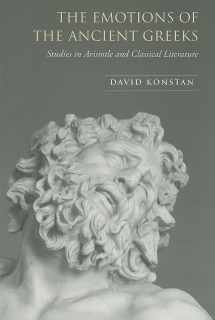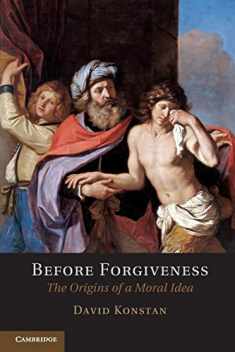
The Emotions of the Ancient Greeks: Studies in Aristotle and Classical Literature (Robson Classical Lectures)
Book details
Summary
Description
It is generally assumed that whatever else has changed about the human condition since the dawn of civilization, basic human emotions - love, fear, anger, envy, shame - have remained constant. David Konstan, however, argues that the emotions of the ancient Greeks were in some significant respects different from our own, and that recognizing these differences is important to understanding ancient Greek literature and culture.
With The Emotions of the Ancient Greeks, Konstan reexamines the traditional assumption that the Greek terms designating the emotions correspond more or less to those of today. Beneath the similarities, there are striking discrepancies. References to Greek 'anger' or 'love' or 'envy,' for example, commonly neglect the fact that the Greeks themselves did not use these terms, but rather words in their own language, such as orgê and philia and phthonos, which do not translate neatly into our modern emotional vocabulary. Konstan argues that classical representations and analyses of the emotions correspond to a world of intense competition for status, and focused on the attitudes, motives, and actions of others rather than on chance or natural events as the elicitors of emotion. Konstan makes use of Greek emotional concepts to interpret various works of classical literature, including epic, drama, history, and oratory. Moreover, he illustrates how the Greeks' conception of emotions has something to tell us about our own views, whether about the nature of particular emotions or of the category of emotion itself.


We would LOVE it if you could help us and other readers by reviewing the book
Book review




